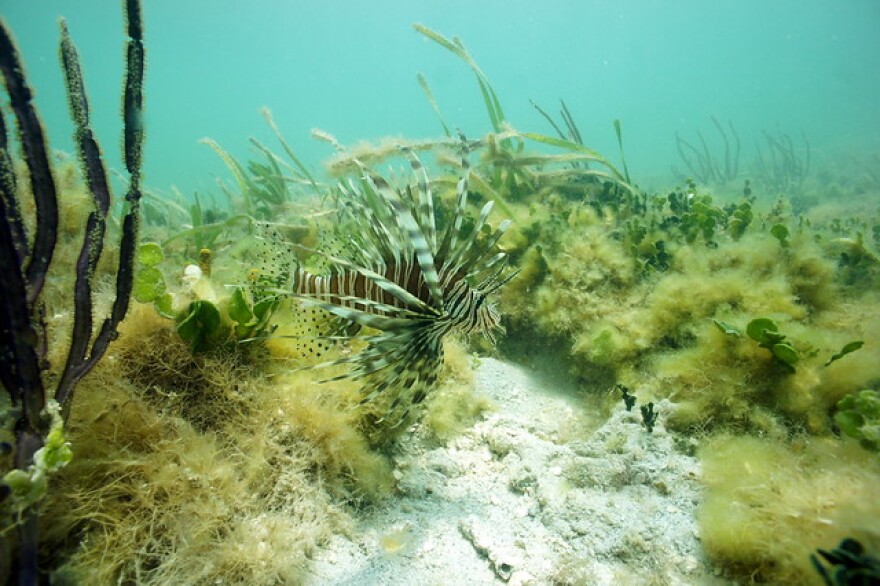This year’s Emerald Coast Open was a record-breaker with nearly 20,000 lionfish removed from the water in Okaloosa County.
The annual fishing tournament aims to reduce the number of lionfish from the Gulf of Mexico where they pose a threat to native marine life.
During the pre-tournament competition, which began Feb.1, lionfish hunters removed 5,048 of the invasive species. Another 14,119 were removed during the main event last weekend, bringing the grand total to 19,167. The tournament had a total of 189 individual hunters from across the United States and Caribbean.
“Last year’s total was 9,000,” said Brady Hale, marketing coordinator for the Emerald Coast Open. “We had a big jump in numbers and we almost doubled in participation.”
The winning team, Florida Man, finished the tournament with 2,241 lionfish earning the $10,000 grand prize. Captain Josh Livingston said he had been hunting lionfish for the past five years. He’s also working with the University of Florida on deploying lionfish traps in the Gulf.
“There’s a lot of prep work — understanding where the fish are at, looking for trends and creating a solid game plan,” he explained.
While there were cash prizes at stake, lionfish removal is more about conservation than competition. For the past 30 years, the non-native species have invaded the Gulf and Atlantic Ocean reducing fish populations at a rapid rate.
“They can eat 30 to 40 fish per hour, they’re prolific breeders and they have no predators…it’s a trifecta of bad,” Hale said.
Another concern is the local commercial and recreational fishing industry, especially in Destin which has the largest commercial fishing fleet in the state.
“There are hundreds of boats that go out — one lionfish can really take out a population of fish,” Hale said. “In the early 2000s, the Bahamas lost up to 80% of fish diversity (to lionfish). People aren’t going to come here and pay to fish red snapper if there’s none left.”
Because lionfish are rarely caught on hook and line, most hunters spear dive for lionfish. Throughout the Emerald Coast Open, they bring their catches to designated drop-off sites to be recorded. Hale said lionfish caught during the tournament are also used to for research to look at preventative measures.
Alongside the Emerald Coast Open, Florida Fish and Wildlife Conservation Commission (FWC) hosts its own incentive program with cash prizes and raffle drawings. The 2019 Lionfish Challenge runs through Sept. 2.
Amanda Nalley, spokesperson for FWC said challenges are imperative to controlling the lionfish population.
“We don’t believe there’s a chance to eradicate them,” she said. “There are a lot of non-native species (in the water), but lionfish are the most successful invader to date and what’s most disconcerting is how they’re known to breed pretty rapidly.”
It’s unknown how exactly lionfish started population the Gulf and Atlantic coasts, but Nalley said it’s likely from an intentional or unintentional aquarium release, which is why part of the issue is educating the public on responsible pet ownership.
Even if you don’t plan to go spear-fishing, you can help reduce the number of lionfish easily — by eating them. Lionfish do have venomous spines, but there is no venom in the meat. You can find lionfish on the menu at local restaurants and find a list of wholesalers on the FWC website.


